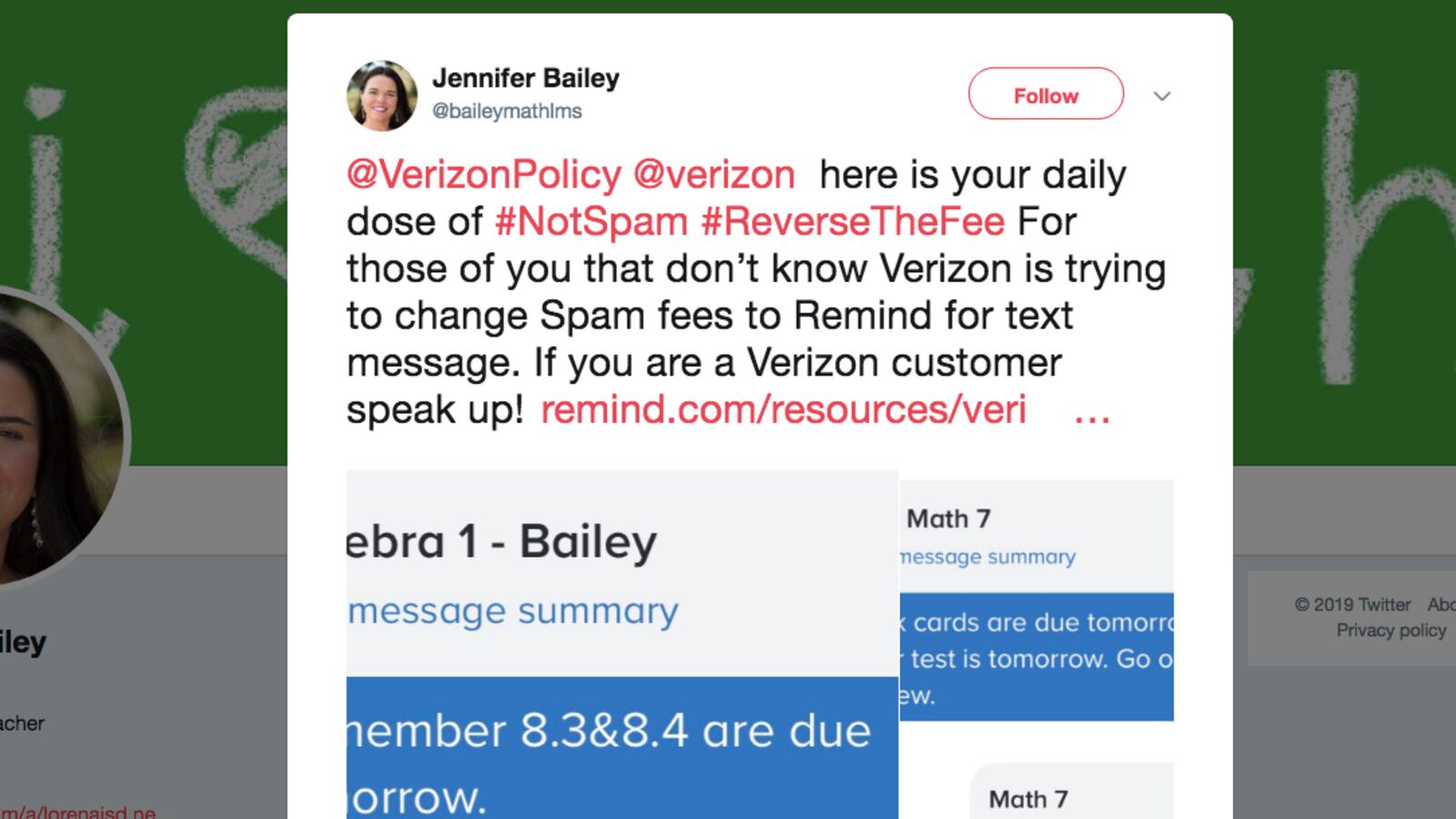Hell hath no fury like teachers who are told that their direct line to students and parents might soon be cut off.
That’s what Verizon is learning after a text-messaging service used by teachers and parents to share updates about homework assignments and snow days announced that the company would soon make messaging prohibitively expensive.
The service, Remind, emailed users late Monday to tell them that Verizon had decided to treat their messages as spam — a move that would make it impossible to continue distributing messages for free. The change would affect 7 million of the service’s 31 million users, a spokesperson said.
“The Verizon fee will increase our costs of providing text messaging by 11X—pushing our annual costs into the millions of dollars,” the company said in the letter. “This isn’t financially feasible for us to support, and it’s forcing us to end Remind text messaging for everyone who has a wireless plan with Verizon.”
The letter urged teachers and families to download Remind’s app instead — and to lobby Verizon to change its policy.
“If there’s one thing we know, it’s the power of communication,” Remind’s website read. “If Remind’s made a positive impact on how you teach or learn, please call Verizon and ask them to #ReverseTheFee.”
Overnight and into Tuesday, countless educators and parents followed Remind’s lead, posting on Twitter and calling Verizon to explain why free text messaging is essential to their work. Two million educators use the service monthly, and the company says it is used in about 80 percent of U.S. schools.
“My reminders to students and their parents are #NotSpam!!,” wrote Phillip Cantor, a high school teacher in Chicago. “My district allows ONLY @remind101 to communicate with students via text because it’s safe and free.”
“I bet you didn’t know that 29% of the students that attend the school I teach at rely on the translation tool built into @RemindHQ,” tweeted Beth Small. “Please don’t silence parent/teacher communication!”
“The Remind service is invaluable with my students,” wrote David Bell. “As a high school counselor it helps me build a rapport with my students that wouldn’t otherwise exist.”
Remind officials said the company had been trying to negotiate with Verizon since last summer, when the company first announced the rate increase. (They also said they are locked in a similar conflict with a telecommunications company in Canada.)
Those negotiations are complicated. According to a Verizon spokesperson, Remind contracts with another messaging company, Twilio, that contracts with a firm that has a contract with Verizon, and Remind is not the only service to be caught in a dragnet meant to reduce the number of spam messages that cell phone users receive.
Several of those companies met throughout the day Tuesday with the goal of preserving free text-messaging for teachers and schools. But the night ended without a resolution, and with the social media protest continuing to take aim at the phone company.
“As a student, I use Remind daily and by charging teachers for using its features, that experience will be cut off for me,” tweeted Keegan Ator. “What’s more important, future generations of hard-working students or a few extra pennies in the bank?”


